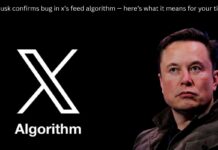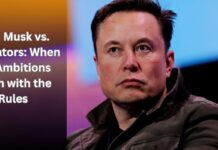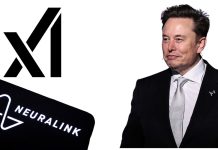Table of Contents
Wikipedia is the go-to place for quick information—almost everyone uses it for facts, history, science, culture, and more. But now, Elon Musk says he’s building a new version: Grokipedia, powered by his AI company xAI. He claims it will be better, more neutral, and more intelligent than Wikipedia. What will this new platform look like? What are its new features? And what challenges might it face? Let’s dive in.
1. What Is Grokipedia?
- Musk announced via social media that xAI is developing Grokipedia, an AI-driven encyclopaedia intended to compete with Wikipedia.
- The name comes from Grok, xAI’s chatbot. Grokipedia is meant to combine AI and human knowledge to provide better, more accurate, and more neutral information.
- Musk says Grokipedia will be “a massive improvement over Wikipedia” and a necessary step toward xAI’s goal of “understanding the Universe.”
- Wiki co-founder Larry Sanger welcomed the idea of competition but warned that AI systems can still be biased.
2. What New Features and Capabilities Could Grokipedia Have?
Though full details are not yet out, the announcement and existing AI trends suggest these features:
| Feature | What It Could Do | Why It Adds Value / What It Addresses |
| AI-Generated Content with Context | Use AI to generate articles, fill gaps, and revise existing entries. | Can cover more subjects, especially ones Wikipedia may lack. |
| Fact Correction & Updates | Grok/AI models could continuously check and correct errors or outdated facts. | Wikipedia often lags on updates; AI can help catch more errors. |
| Neutral & Transparent Edit Process | Musk claims Grokipedia will reduce the perceived bias present in Wikipedia. | Some believe Wikipedia has an ideological tilt; Grokipedia aims to be more balanced. |
| Open Source / Open Access | Likely to allow public contributions or open data (depending on policies). | Community involvement helps surface diverse knowledge. |
| AI Recommendations & Reasoning | Articles with “missing context,” deeper insights, and dynamic links based on AI understanding. | Better depth than static encyclopedia pages. |
| Integration with Grok / xAI Tools | Grokipedia may be closely tied to Grok, letting the chatbot directly use it for answers. | That means chatbot responses could be more grounded in curated knowledge. |
3. Why Elon Musk Thinks Wikipedia Needs a Rival
- Musk has long criticized Wikipedia, calling it “biased” and aligning it with political viewpoints. Grokipedia aims to provide what he views as a more objective knowledge base.
- He argues that Wikipedia is often used as a source by AI systems; if Wikipedia has errors or bias, those propagate. Grokipedia would try to be cleaner, more neutral, and better vetted.
- Musk says building Grokipedia is “a necessary step” toward his vision for xAI to truly understand and explain the universe.
4. Challenges and Risks
Building something like Grokipedia won’t be easy. Here are some challenges it may face:
- AI bias & correctness: Even AI systems make mistakes or reflect biases in training data. Ensuring fact accuracy and neutrality is tricky.
- Editorial trust: People trust Wikipedia partly because of its long history and community rules. Convincing users to trust a new AI encyclopedia will take time.
- Content moderation/vandalism: Like Wikipedia, Grokipedia will need safeguards against false edits, trolling, or spreading misinformation.
- Diverse knowledge representation: Ensuring coverage of knowledge from non-Western cultures, languages, and fields.
- Funding & incentives: Maintaining an encyclopedia (servers, review teams) costs money. Balancing open access with sustainability is hard.
- Community vs central control: If AI handles most things, where do human editors fit in? Striking a balance is key.
5. What This Could Mean for the Future of Knowledge
- Smarter AI answers: Grok and other AI tools might rely on Grokipedia as a more authoritative source, making answers better.
- Hybrid knowledge platform: A mix of AI and human contributions might lead to faster updates, broader topics, and deeper insight.
- Pressure on existing encyclopaedias: Wikipedia and similar platforms will likely respond—by improving their systems, transparency, or user tools.
- New norms for facts & truth: Grokipedia could reshape how we think about “authoritative knowledge” in the AI age.
Conclusion
Grokipedia is an ambitious bet: to build a next-generation AI encyclopedia that challenges Wikipedia’s dominance. It promises AI-enhanced content, self-correction, better neutrality, and deep integration with Grok and xAI. But it also faces big challenges—bias, trust, moderation, and community.
If Musk and xAI can balance all that, Grokipedia could become a powerful knowledge tool for the AI era. But it’s a big “if.” We’ll be watching closely as Grokipedia develops.




































